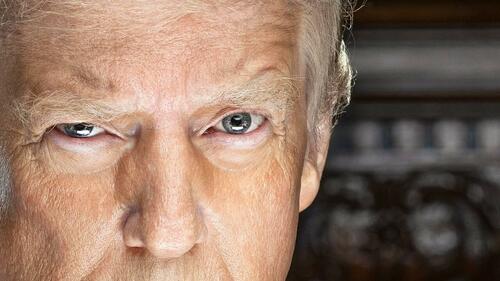Authored by Steve Watson via Modernity.news,
Legislation has been introduced to direct the National Institutes of Health (NIH) to investigate the psychological and social roots of ‘Trump Derangement Syndrome’.
Ohio Republican Rep. Warren Davidson has presented the Trump Derangement Syndrome (TDS) Research Act of 2025, intended to shed light on what has been a serious cultural affliction.
Described as an “intense, irrational hysteria” triggered by the mere mention of President Trump, TDS has become a catch-all for the unhinged reactions of his critics— whether it comes in the form of spittle-flecked blue hair rants, protest effigies, or social media meltdowns.
Co-sponsored by Alabama Rep. Barry Moore, the research will look to explain why leftists lose their collective minds at the sight of a red hat.
Davidson’s legislation defines TDS as “the acute onset of paranoia in otherwise normal persons” reacting to Trump’s policies, presidency, or very existence, manifesting in “verbal expressions of intense hostility” and even “overt acts of aggression and violence” against his supporters.
The bill points to real-world consequences, citing two assassination attempts on Trump in 2024 as evidence of TDS’s toxic grip.
“This isn’t just about hurt feelings,” Davidson said in a statement, adding “TDS has divided families, fueled nationwide violence, and turned dinner parties into screaming matches.”
“The NIH needs to study this so we can find solutions,” he further urged.
Immediately proving the entire point of the bill, Leftists accused Republicans of weaponizing mental health against supporters of their political opponents.
This isn’t the first time TDS has made legislative waves. In March 2025, five Minnesota Senate Republicans pushed a bill to classify TDS as a mental illness in state law, defining it as “Trump-induced general hysteria” that clouds the ability to distinguish policy disagreements from “psychic pathology.”
That effort, led by Sens. Eric Lucero and others, crashed and burned amid backlash from Democrats, who called it “possibly the worst bill in Minnesota history” and an affront to free speech.
One co-sponsor, Sen. Justin Eichorn, later resigned after a scandal involving charges of soliciting a minor, which didn’t exactly help the bill’s optics.
Davidson’s bill takes a different tack, framing TDS as a public health issue worthy of NIH scrutiny. It calls for reallocating existing NIH funds—no new taxpayer dollars—away from what Davidson calls “ludicrous studies like giving meth to cats” toward something “relevant to everyday Americans.”
The bill tasks the NIH with probing the media’s role in amplifying TDS, analyzing its impact on political polarization, and hunting for “patient zero” of the phenomenon.
Within two years, the NIH would report its findings to Congress, potentially shedding light on whether TDS is a genuine psychological condition or just a snarky political jab.
Trump supporters argue the bill is long overdue. They point to extreme anti-Trump rhetoric—comparisons to Hitler, nationwide protests, and the assassination attempts—as evidence that the left has gone haywire.
* * *
Your support is crucial in helping us defeat mass censorship. Please consider donating via Locals or check out our unique merch. Follow us on X @ModernityNews.
Loading...
